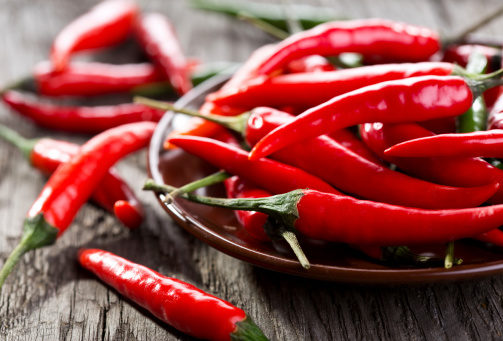Beijing, China—A new long-term observational study published in BMJ suggests that regular consumption of spicy foods may play a role in lowering the risk of early death from various causes.While much previous study has been done on spices and some of the bioactive compounds, such as capsaicin, to which any potential beneficial properties are attributed, this is one of the first to try and address mortality outright.
This study used data from the China Kadoorie Biobank, a prospective cohort study of over 0.5 million adults from 10 geographically diverse areas across China between 2004 and 2008. The final analyses included 199,293 men and 288,082 women, while people with stroke, heart disease and cancer at baseline were excluded. The subjects were surveyed on both the frequency of their spice consumption, as well as the main sources of their spice consumption (e.g., chili oil, fresh chili pepper, dried chili pepper) The subjects were then tracked either until death or December 2013, accounting for other established or potential risk factors for early death.
The study results showed that spicy food consumption was inversely associated with the risks of death due to cancer, ischemic heart diseases and respiratory diseases in the whole cohort, though the study authors were quick to note that this does not necessarily imply a causation relationship. Overall, those who reported consuming spicy food nearly daily showed almost 14% less incidents of early death compared to those who reported consuming it less than once a week. This association did not change appreciably after adjustments for factors like occupation and socioeconomic status, smoking or rural vs. urban locations. Overall, lowered total mortality among frequent spice consumers was consistent across gender lines as well.
When it comes to the ideal spice form, fresh chili pepper was recorded as the most common spice option among subjects. In addition, an inverse association between daily consumption of spicy foods and diabetes was also recorded, but was unique to those who favored fresh chili pepper. However, usage of other spices also increased along with heavy fresh chili pepper consumption, something the study authors noted may contribute to the association. At the same time, though, they acknowledged the body of research associating capsaicin with anti-inflammatory, antioxidant and other positive health effects. Ultimately, the researchers concluded that further research in other populations would be needed to determine if a true causal relationship was present between spicy food consumption and lower mortality, even though the inverse association found here was “statistically significant.”
Published in WholeFoods Magazine, 9/8/2015










